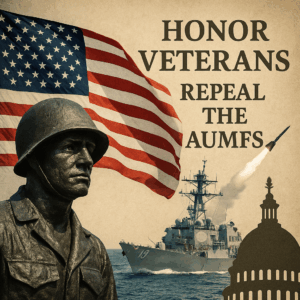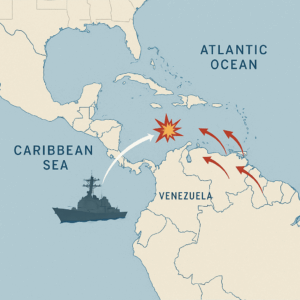What Must Come Next: A Framework for the Libertarian Party’s Future
The Libertarian Party has never lacked ideas, passion, or principled advocates. What it has often lacked is sustained institutional focus, the kind of disciplined, coordinated, long-term effort required to transform a philosophical movement into a durable political organization. After years of service within the Party, engagement with activists across the country, and reflection on both successes and setbacks, I have become convinced that the path forward is neither mysterious nor unattainable. It is simply demanding.
The moment before us is not one of existential crisis, but of organizational maturation. Voters dissatisfied with the two major parties continue to search for alternatives. Liberty-oriented ideas permeate public discourse more than at any point in recent memory. Yet opportunity without capacity yields little impact. The question before the Libertarian Party and the Libertarian National Committee (LNC) is therefore straightforward: how do we build a political institution capable of meeting this moment?
What follows is a framework for what I believe must happen next.
Cultural Reform as Strategic Necessity
Every organization possesses a culture, whether intentionally cultivated or emergent from behavior over time. For the Libertarian Party, culture has often been characterized by intense independence, passionate debate, and a strong resistance to centralized authority. These qualities are understandable given our philosophical roots. However, when unmanaged, they can also produce reputational harm, internal fragmentation, and barriers to collaboration.
Cultural reform is not about suppressing disagreement or diluting principle. Rather, it is about recognizing that political organizations operate in a competitive environment where perception, professionalism, and cohesion influence outcomes. Public displays of internal conflict rarely persuade new supporters; they instead signal instability. Volunteers and donors are less likely to invest in organizations perceived as perpetually divided.
Future leadership must therefore cultivate norms that allow vigorous internal debate while maintaining external message discipline. This includes encouraging constructive disagreement, reinforcing shared goals, and ensuring that conflict resolution occurs in spaces that preserve institutional credibility. A Party capable of managing its differences without undermining itself gains a significant strategic advantage.
Culture, in this sense, becomes infrastructure.
Understanding the Libertarian Ecosystem
A recurring strategic error within the Party has been treating “Libertarians” as a singular category. In reality, the movement is an ecosystem composed of distinct yet overlapping groups: voters, members, activists, and donors. Each group engages with liberty through different motivations, constraints, and levels of commitment.
Libertarian voters may consistently support our candidates but never formally join. Members may maintain financial support without engaging in activism. Activists often contribute substantial time while lacking financial resources. Donors may support liberty causes broadly while remaining organizationally detached from the Party.
Recognizing these distinctions changes how we measure success and design outreach. Instead of asking why voters are not members, we should ask how to create pathways that make membership a natural next step. Instead of viewing donors solely as revenue sources, we should view them as long-term partners in building capacity. Instead of expecting activists to self-organize indefinitely, we should equip them with tools that increase effectiveness and reduce burnout.
Growth emerges not from collapsing these categories, but from connecting them.
Individual Agency as Organizational Infrastructure
One of the Libertarian Party’s greatest assets is the initiative of its members. Across the country, individuals host events, recruit candidates, build affiliate organizations, design outreach materials, and introduce neighbors to liberty, often without formal direction or recognition. This decentralized activity reflects our philosophical commitment to voluntary action, but it also represents untapped organizational potential.
The success of the Party ultimately depends on individuals acting. National leadership cannot substitute for local initiative. However, leadership can either amplify or hinder that initiative depending on whether it provides supportive infrastructure.
The role of the LNC should therefore be understood as enabling distributed leadership. This means investing in training, documentation, communication channels, data systems, and best-practice sharing that allow members to act effectively without reinventing processes. When individuals can plug into a supportive framework, their efforts compound rather than dissipate.
In this model, leadership does not command activity, it multiplies it.
Radical Empathy and Humanized Messaging
Liberty is not merely a set of policy positions; it is a moral framework centered on human dignity, autonomy, and peaceful cooperation. Yet our messaging has often emphasized intellectual argumentation at the expense of emotional resonance. While principled consistency remains essential, persuasion requires connecting those principles to lived experience.
Radical empathy, the deliberate effort to understand and communicate the human impact of policy, offers a pathway to more effective advocacy. When we tell stories about individuals affected by overregulation, criminalization, economic barriers, or institutional failure, liberty becomes tangible rather than theoretical.
This approach does not dilute our philosophy; it demonstrates its relevance. It invites people into a conversation grounded not only in ideas but in shared concern for human flourishing. Candidates, activists, and communicators who integrate empathy into their work strengthen the Party’s ability to build broad coalitions without compromising principle.
Long-Term Strategic Ambition and the Parity Project
Political institutions are not built overnight. The major parties benefit from decades, in some cases centuries of accumulated infrastructure, donor networks, candidate pipelines, and media relationships. Expecting episodic breakthroughs to substitute for sustained development misunderstands the nature of political growth.
The concept behind the Parity Project is simple but ambitious: commit to building the Libertarian Party’s capacity to compete structurally with the major parties over the next decade. This does not imply identical scale but comparable functionality, the ability to recruit candidates consistently, support campaigns effectively, grow membership predictably, and maintain organizational continuity.
Achieving parity requires strategic persistence. It demands leadership transitions that preserve progress rather than reset priorities. It requires committees aligned around shared long-term objectives. Most importantly, it necessitates members who view their contributions as part of a cumulative institutional project.
Parity is not a single milestone. It is a trajectory.
Governance: Transparency, Effectiveness, and Accountability
Institutional growth depends on trust. Members must believe that decisions are made transparently, resources are used effectively, and leaders remain accountable to the organization’s mission. These governance principles are not abstract ideals; they are operational necessities that influence engagement, fundraising, and volunteer retention.
Transparency fosters understanding and reduces speculation. Effectiveness ensures that effort translates into measurable progress rather than performative activity. Accountability reinforces the reciprocal relationship between leadership and membership.
For the LNC, embodying these principles means prioritizing clear communication, outcome-oriented planning, and consistent evaluation of initiatives. An organization that demonstrates competence internally strengthens its credibility externally.
Urgency Paired With Patience
The Libertarian Party exists within a political environment characterized by volatility, dissatisfaction, and realignment. Opportunities for growth appear regularly, yet seizing them requires readiness. Organizational capacity cannot be improvised in moments of opportunity; it must be cultivated beforehand.
This creates a dual imperative: act with urgency while thinking in decades. Urgency motivates effort, recruitment, and innovation. Patience sustains long-term projects and prevents discouragement when progress is incremental. Together, they produce steady advancement rather than episodic bursts of activity followed by stagnation.
The Party’s future will be shaped not by singular events but by sustained collective effort.
Building an Institution Worth Inheriting
The Libertarian Party’s mission extends beyond any individual campaign, committee, or convention cycle. We are participants in an intergenerational project: building a political institution capable of advancing liberty long after our current roles conclude. This perspective changes how we evaluate decisions, measure success, and approach leadership.
Institution-building requires cultural maturity, strategic clarity, and a willingness to invest in systems that outlast personalities. It requires recognizing that every volunteer recruited, every process documented, every candidate supported, and every donor cultivated contributes to a foundation others will inherit.
The question before us is not whether the Libertarian Party can succeed, but whether we are willing to undertake the disciplined work success requires.
I believe we are.
And now is the time.
What Must Come Next: A Framework for the Libertarian Party’s Future Read Post »


